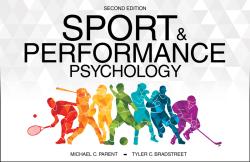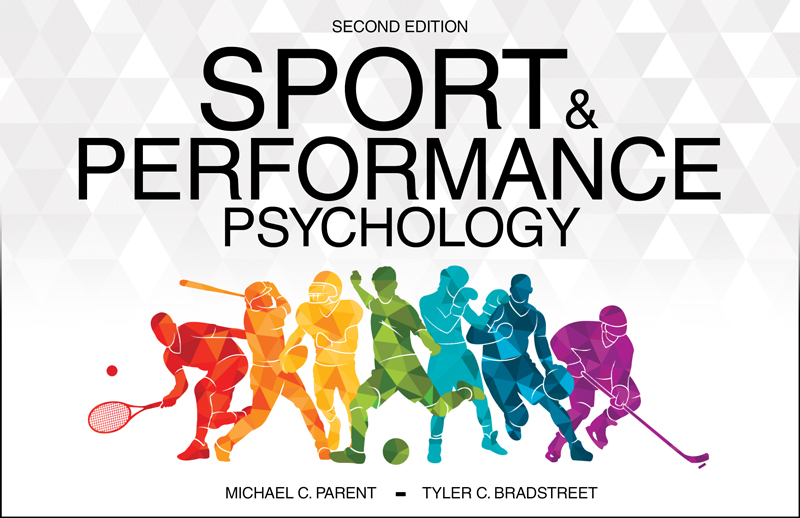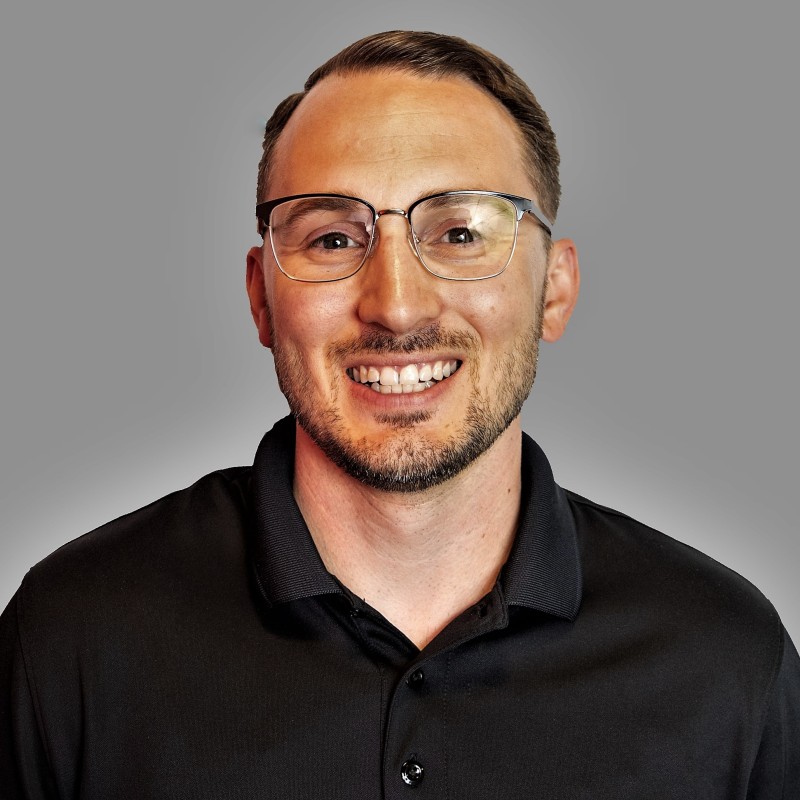Sport and Performance Psychology
Author(s): Michael Parent , Tyler Bradstreet
Edition: 2
Copyright: 2024
Pages: 243
Choose Your Platform | Help Me Choose
Sport & Performance Psychology provides students with a broad knowledge base and skillset that can be used not only sport settings and the athletes involved, but to all other settings where performance is important to groups and individuals—business, military, performing arts, health and wellness, and so on.
Michael Parent and Tyler Bradstreet’s Sport & Performance Psychology is an online course package that:
- outlines the past, present, and future of sport psychology.
- describes how wellness can be promoted via sport and sport psychology.
- considers diversity issues within the sport and athlete context.
- identifies the psychological characteristics of peak performers and how they can be applied to optimize performance.
- describes current clinical issues within sport psychology.
- embeds textual content, videos, interactive activities, quizzes, and more.
Chapter 1: What is Sport Psychology?
Chapter 2: Personality in Sport
Chapter 3: Self-Regulation
Chapter 4: Goal-setting
Chapter 5: Reinforcement and Achievement Motivation
Chapter 6: Motor Learning & Skill Acquisition
Chapter 7: Team Cohesion & Group Dynamics
Chapter 8: Leadership & Effective Communication
Chapter 9: Child and Adolescent Sports: Opportunities and Challenges
Chapter 10: Mental and Physical Health Benefits of Sport and Exercise
Chapter 11: Sports, Exercise, and Aging
Chapter 12: Race, Racism, and Sport
Chapter 13: Intersex and Transgender Identities in Sport
Chapter 14: Lesbian, Gay, and Bisexual Issues in Sport
Chapter 15: Mental & Behavioral Health of Athletes
Chapter 16: Body Image, Disordered Eating, and Overtraining
Chapter 17: Substance Use in Athletics
Chapter 18: Psychology of Injury
Chapter 19: Burnout and Transitions Away from Sport
Chapter 20: Anxiety, Stress, and Performance
Chapter 21: Self-talk for Athletic and Performance Enhancement
Chapter 22: Imagery and Mental Rehearsal
Chapter 23: Energy Management & Attentional Focus
Chapter 24: Confidence and Self-Efficacy
Chapter 25: Mindfulness Training
Chapter 26: Putting it all together
Dr. Parent was born in the small town of Morris, Manitoba, Canada, where he completed high school. Growing up in a low-income community, he had limited access to sports facilities; his middle and high school had no sports teams for sports that required specialized equipment such as football. He competed in field events for his school, including high jump and long jump. Dr. Parent completed his undergraduate degree at the University of Manitoba, in Winnipeg, Canada. He began weight lifting at the University of Manitoba gym. In 2007, he moved to Gainesville, Florida, to begin his PhD in Counseling Psychology. While at the University of Florida he continued weight training and competed in the first UF Strong Gator strongman/strongwomen competition. He moved to Lubbock, Texas, in 2013 to begin his first faculty position as an assistant professor at Texas Tech University, Dr. Parent competed in his first bodybuilding competition. He has continued to compete in bodybuilding competitions since then.
Dr. Parent transitioned to the University of Texas at Austin in 2017, where he worked as an associate professor and was chair of the counseling psychology PhD and counselor education MEd programs; conducted research on health disparities, substance use, and men’s health behaviors; and taught undergraduate courses in Human Sexuality, Sports Psychology, and Addiction Counseling, and graduate courses in Addictions, Research Methods, and Cognitive Assessment. He maintained a private practice, where he conducted assessments for attention-deficit/hyperactivity disorder (ADHD), learning disorders, and autism spectrum disorder and saw therapy patients weekly for treatment of post-traumatic stress disorder (PTSD), adult ADHD, and other conditions. Dr. Parent is a licensed and board-certified psychologist, and obtained an MBA in 2022. Dr. Parent transitioned out of full-time academia in 2023, and currently works in youth-centered philanthropy and research at Hopelab.
Dr. Bradstreet is a licensed psychologist, certified mental performance coach, and a nationally recognized leader in the field of sport and performance psychology. Dr. Bradstreet currently serves as the Director of Performance Psychology for the Milwaukee Brewers. Prior to that, he served as the Associate Athletics Director for Psychological Health and Performance for Texas Tech University. Dr. Bradstreet has worked with athletes and coaches from sports in the college, professional, and Olympic ranks, along with other high performers such as military personnel, C-suite executives, and venture capitalists. Dr. Bradstreet has been actively involved in leadership in the field of psychology at the local, state, and federal level. Dr. Bradstreet has more than 15 peer-reviewed publications, 50 professional presentations, workshops, and invited addresses, and is routinely a media consultant on psychological science. Dr. Bradstreet holds a bachelor’s degree in psychology from Baylor University, master’s degree in kinesiology from University of North Texas, and doctoral degree in counseling psychology from Texas Tech University. He completed his residency at University of Maryland School of Medicine. Dr. Bradstreet and his wife, Dr. Bailey Tackett, reside in Scottsdale, Arizona, with their son, TJ.
Sport & Performance Psychology provides students with a broad knowledge base and skillset that can be used not only sport settings and the athletes involved, but to all other settings where performance is important to groups and individuals—business, military, performing arts, health and wellness, and so on.
Michael Parent and Tyler Bradstreet’s Sport & Performance Psychology is an online course package that:
- outlines the past, present, and future of sport psychology.
- describes how wellness can be promoted via sport and sport psychology.
- considers diversity issues within the sport and athlete context.
- identifies the psychological characteristics of peak performers and how they can be applied to optimize performance.
- describes current clinical issues within sport psychology.
- embeds textual content, videos, interactive activities, quizzes, and more.
Chapter 1: What is Sport Psychology?
Chapter 2: Personality in Sport
Chapter 3: Self-Regulation
Chapter 4: Goal-setting
Chapter 5: Reinforcement and Achievement Motivation
Chapter 6: Motor Learning & Skill Acquisition
Chapter 7: Team Cohesion & Group Dynamics
Chapter 8: Leadership & Effective Communication
Chapter 9: Child and Adolescent Sports: Opportunities and Challenges
Chapter 10: Mental and Physical Health Benefits of Sport and Exercise
Chapter 11: Sports, Exercise, and Aging
Chapter 12: Race, Racism, and Sport
Chapter 13: Intersex and Transgender Identities in Sport
Chapter 14: Lesbian, Gay, and Bisexual Issues in Sport
Chapter 15: Mental & Behavioral Health of Athletes
Chapter 16: Body Image, Disordered Eating, and Overtraining
Chapter 17: Substance Use in Athletics
Chapter 18: Psychology of Injury
Chapter 19: Burnout and Transitions Away from Sport
Chapter 20: Anxiety, Stress, and Performance
Chapter 21: Self-talk for Athletic and Performance Enhancement
Chapter 22: Imagery and Mental Rehearsal
Chapter 23: Energy Management & Attentional Focus
Chapter 24: Confidence and Self-Efficacy
Chapter 25: Mindfulness Training
Chapter 26: Putting it all together
Dr. Parent was born in the small town of Morris, Manitoba, Canada, where he completed high school. Growing up in a low-income community, he had limited access to sports facilities; his middle and high school had no sports teams for sports that required specialized equipment such as football. He competed in field events for his school, including high jump and long jump. Dr. Parent completed his undergraduate degree at the University of Manitoba, in Winnipeg, Canada. He began weight lifting at the University of Manitoba gym. In 2007, he moved to Gainesville, Florida, to begin his PhD in Counseling Psychology. While at the University of Florida he continued weight training and competed in the first UF Strong Gator strongman/strongwomen competition. He moved to Lubbock, Texas, in 2013 to begin his first faculty position as an assistant professor at Texas Tech University, Dr. Parent competed in his first bodybuilding competition. He has continued to compete in bodybuilding competitions since then.
Dr. Parent transitioned to the University of Texas at Austin in 2017, where he worked as an associate professor and was chair of the counseling psychology PhD and counselor education MEd programs; conducted research on health disparities, substance use, and men’s health behaviors; and taught undergraduate courses in Human Sexuality, Sports Psychology, and Addiction Counseling, and graduate courses in Addictions, Research Methods, and Cognitive Assessment. He maintained a private practice, where he conducted assessments for attention-deficit/hyperactivity disorder (ADHD), learning disorders, and autism spectrum disorder and saw therapy patients weekly for treatment of post-traumatic stress disorder (PTSD), adult ADHD, and other conditions. Dr. Parent is a licensed and board-certified psychologist, and obtained an MBA in 2022. Dr. Parent transitioned out of full-time academia in 2023, and currently works in youth-centered philanthropy and research at Hopelab.
Dr. Bradstreet is a licensed psychologist, certified mental performance coach, and a nationally recognized leader in the field of sport and performance psychology. Dr. Bradstreet currently serves as the Director of Performance Psychology for the Milwaukee Brewers. Prior to that, he served as the Associate Athletics Director for Psychological Health and Performance for Texas Tech University. Dr. Bradstreet has worked with athletes and coaches from sports in the college, professional, and Olympic ranks, along with other high performers such as military personnel, C-suite executives, and venture capitalists. Dr. Bradstreet has been actively involved in leadership in the field of psychology at the local, state, and federal level. Dr. Bradstreet has more than 15 peer-reviewed publications, 50 professional presentations, workshops, and invited addresses, and is routinely a media consultant on psychological science. Dr. Bradstreet holds a bachelor’s degree in psychology from Baylor University, master’s degree in kinesiology from University of North Texas, and doctoral degree in counseling psychology from Texas Tech University. He completed his residency at University of Maryland School of Medicine. Dr. Bradstreet and his wife, Dr. Bailey Tackett, reside in Scottsdale, Arizona, with their son, TJ.





